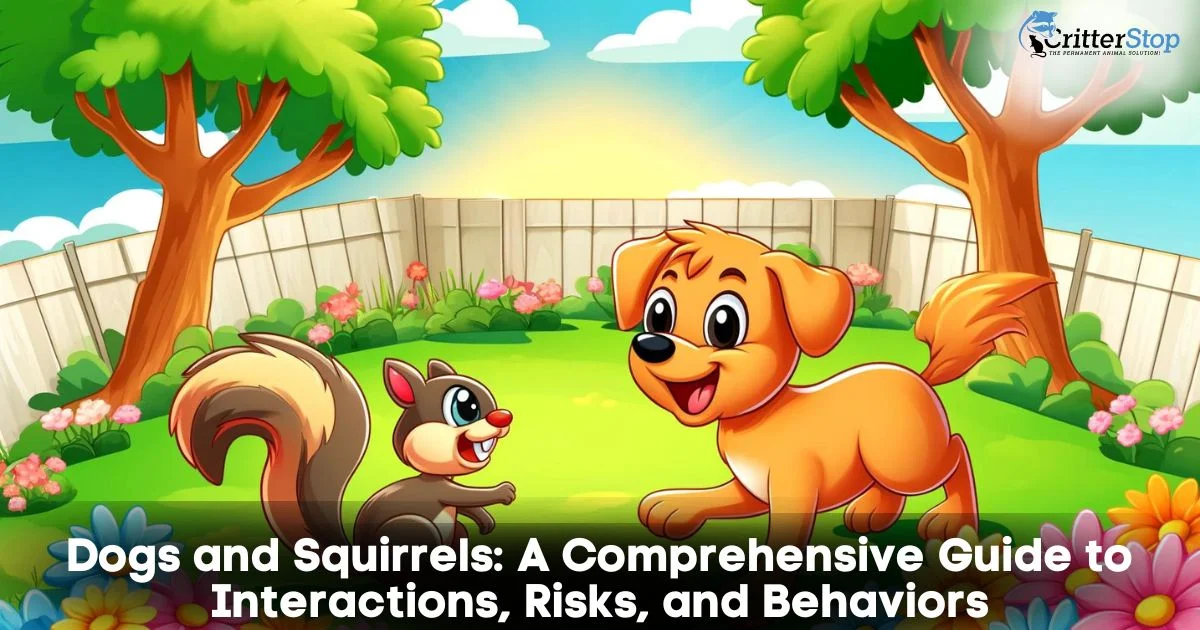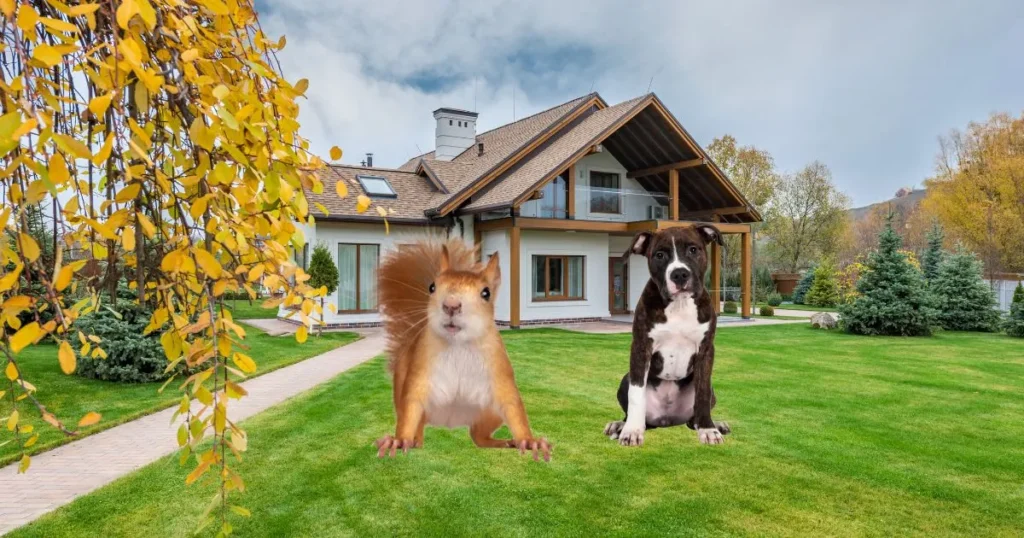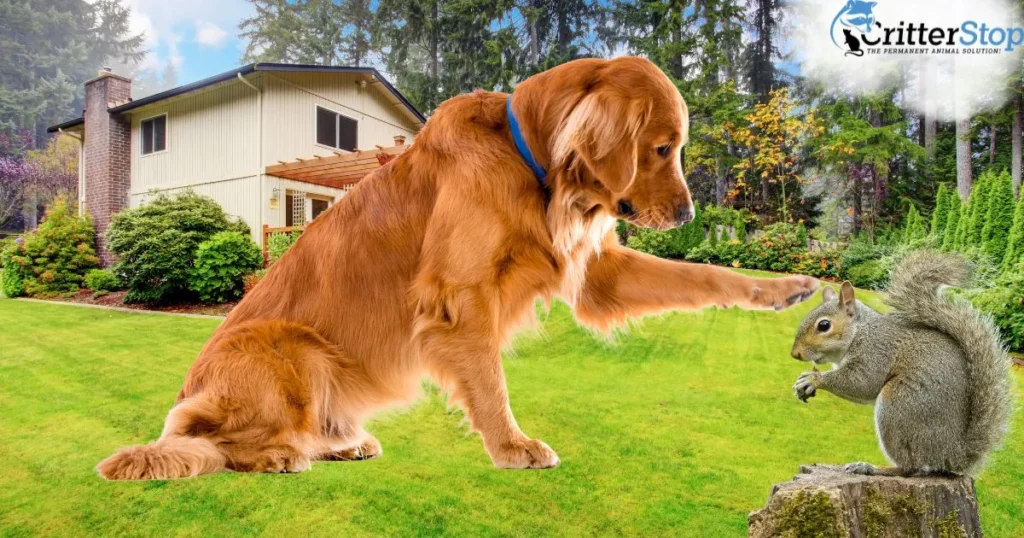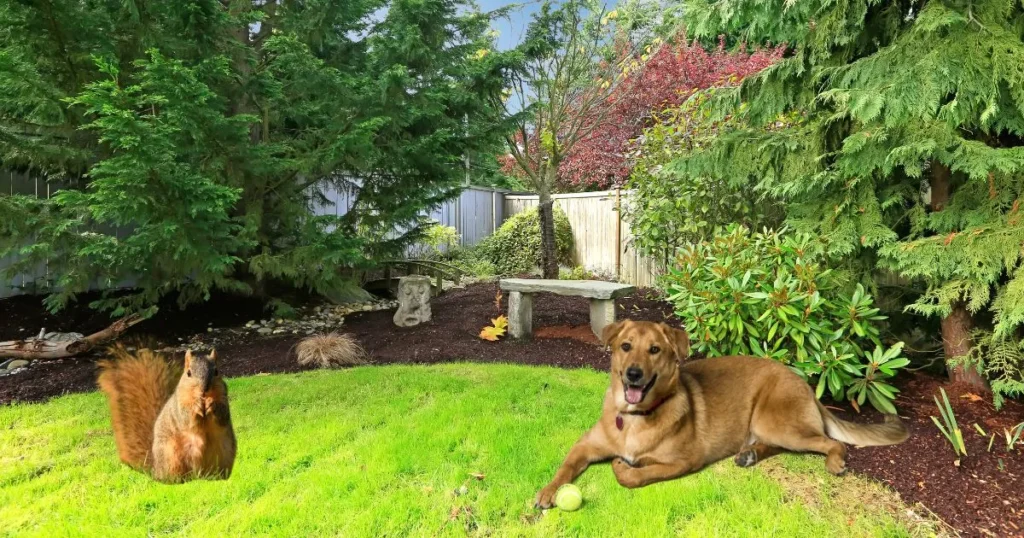
Dogs are naturally curious creatures, often fascinated by the flurry of wildlife around them, including squirrels. These small, agile animals can trigger a range of behaviors in dogs, from playful chasing to aggressive pursuits. It is crucial for dog owners to understand the nature of these interactions, the risks involved, and how to manage them effectively. This article delves deep into if do squirrels carry diseases to dogs, explores the dynamics of their interactions, and provides insight into the natural instincts that drive these encounters.
Squirrels, like many wild animals, can be carriers of various pathogens and parasites. While direct transmission of diseases from squirrels for dogs is rare, the risk cannot be entirely dismissed.
Diseases such as leptospirosis, which can be transmitted through urine and contaminated water, and ticks that squirrels carry, can potentially spread Lyme disease. However, the likelihood of such diseases affecting your dog can be minimized through regular vaccinations and preventative measures against fleas and ticks.

The question of danger is more about the context of the interaction rather than a direct threat from squirrels. In most cases, squirrels do not pose a significant danger to dogs. They are generally more scared of dogs and choose to flee rather than confront. However, if cornered or threatened, a squirrel might scratch or bite in defense, potentially leading to superficial wounds. These encounters are uncommon but could introduce bacteria from a squirrel's claws or teeth.
Contrary to the idea that dogs dislike squirrels, the typical dog's reaction to squirrels is not out of hostility but instinct. The canine’s natural instinct is to chase, attributable to their ancestral hunting drives. For many dogs, squirrels become moving targets that trigger their chase reflex. This doesn't necessarily mean dogs have an innate dislike for squirrels; rather, they are expressing an instinctual behavior.

Chasing is a highly stimulating activity for dogs. It engages their senses and provides a form of physical exercise and mental stimulation. Squirrels, being quick and agile, offer a challenging and moving target, making the chase even more engaging. This behavior is rooted deeply in the predatory segment of a dog's brain, activating the thrill of the hunt without the intent to capture or kill.
Attacks from squirrels on dogs are extremely rare. Squirrels are naturally more inclined to escape and climb to a safe height than to attack a larger animal. An attack might only occur if a squirrel is severely cornered or if a dog attempts to handle it directly, leading to defensive bites or scratches.

To ensure the safety of both your dog and the local squirrel population, consider the following tips:
Leash and Supervise: Always keep your dog on a leash in areas where squirrels are common, and closely supervise any interactions.
Vaccinate and Prevent: Keep your dog's vaccinations up to date and use flea and tick prevention to mitigate the risk of disease transmission.
Training: Train your dog to respond to commands, especially in outdoor settings. Commands like 'leave it' or 'come' can be very effective in managing their prey drive.
Environmental Enrichment: Provide ample playtime and exercise for your dog to reduce their impulsivity and need for chasing wildlife.
.
While squirrels themselves are not typically aggressive towards dogs, indirect risks can arise when dogs become overly fixated on chasing them. Such behaviors can lead to unexpected injuries like sprains or fractures if a dog pursues a squirrel across uneven terrain or up a tree. Moreover, if a chase leads a dog into the road, it increases the risk of traffic-related accidents, which could be severe.

The psychological impact on dogs from persistent chasing can be significant. Dogs that develop a strong fixation on squirrels may become anxious or distressed when unable to pursue them. This can lead to behavioral issues, including disobedience, frustration, and excessive barking or yelping. To mitigate these effects, it's important for pet owners to engage their dogs in alternative forms of mental stimulation and physical exercise.
Effectively managing a dog's natural prey drive requires consistent and patient training. Techniques such as impulse control exercises, focus training, and recall drills are invaluable. These training methods help dogs learn to control their instincts and respond to commands, even in high-distraction environments like the presence of squirrels.
Impulse Control Exercises: Teach your dog to sit and stay before they get a treat or their meal. This helps them learn to control their urge to bolt or chase.
Focus Training: Use a whistle or a specific word to regain your dog's attention. Reward them immediately when they turn their attention away from squirrels and back to you.
Recall Drills: Regularly practice recall commands in controlled environments, gradually moving to areas with more distractions.
Another effective strategy is environmental management. This involves controlling the exposure your dog has to squirrels. Using fenced yards without trees that attract squirrels, or choosing walking routes that are less populated with wildlife, can significantly reduce the occurrences of chasing.
It's crucial to discuss your dog’s behavior and any concerns about wildlife interactions with your veterinarian. Regular check-ups ensure that your dog remains healthy and that any potential issues arising from interactions with squirrels—like ticks or stress-related conditions—are identified and treated early.
Educating communities about the importance of wildlife and the role that pet management plays in protecting both pets and wildlife is crucial. Community programs can provide resources and support for pet owners to manage their pets responsibly in wildlife-rich areas.
Ultimately, the relationship between dogs and squirrels must be managed thoughtfully to balance natural canine instincts with safety and respect for wildlife. By employing effective training strategies, ensuring regular veterinary care, and making informed choices about environmental management, dog owners can minimize risks and enhance the quality of life for their pets. Understanding and managing these interactions is not only beneficial for the safety of dogs and squirrels but also contributes to the harmony and well-being of the broader community.
If you are experiencing frequent squirrel activity on your property that is affecting your dog's behavior or safety, professional intervention may be necessary. At Critter Stop, we specialize in humane wildlife control and can help safely remove squirrels and other wildlife from your property. Our expert team ensures that all animals are handled with care, reducing the risk to your pets and minimizing wildlife disturbance.
Removing squirrels can decrease the likelihood of disease transmission, prevent property damage, and reduce the risk of injury to your dogs from unnecessary chases. By choosing professional squirrel removal services, you're not only protecting your beloved pets but also contributing to maintaining a balanced local ecosystem. Contact us today at (214) 234-2616.
Visit our Critter Library and learn more about our furry friends